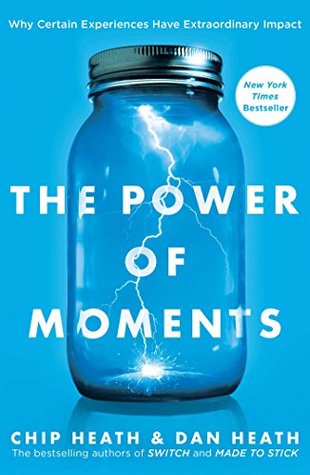More on this book
Community
Kindle Notes & Highlights
by
Chip Heath
Read between
May 9, 2022 - October 19, 2024
Practice quiets the anxiety that can cloud our mind in a tough moment. When we lack practice, our good intentions often falter.
An act of courage can bolster the resolve of others.
a classic study, conducted by Charlan Nemeth and Cynthia Chiles, demonstrating that one act of courage supports another.
if even one person is brave enough to defy the majority,
360 feedback.
what’s hard about being courageous is not knowing what to do but rather knowing how to respond.
Deepen ties.
Create shared meaning.
people were given the opportunity to volunteer for one of 100 “action teams” in areas such as employee satisfaction, patient satisfaction, and reward and recognition.
laughter was 30 times more common in social settings than private ones. It’s a social reaction.
“Reasonable” voices in your organization will argue against synchronizing moments.
anthropologist Dimitris Xygalatas studied two rituals performed as part of the Hindu festival of Thaipusam on the island of Mauritius.
the shared experience of pain—can be seen as “social technology to bind in-groups together.”
If you want to be part of a group that bonds like cement, take on a really demanding task that’s deeply meaningful. All of you will remember it for the rest of your lives.
Purpose is defined as the sense that you are contributing to others, that your work has broader meaning. Passion is the feeling of excitement or enthusiasm you have about your work.
purpose isn’t discovered, it’s cultivated.
When you understand the ultimate contribution you’re making, it allows you to transcend the task list.
shared meaning. It instills not the pride of individual accomplishment, but the profound sense of connection that comes from subordinating ourselves to a greater mission.
Flamboyan Foundation, a family foundation focused on improving schools.
if there’s not trust with the people you’re serving, it doesn’t matter,”
Many charter schools, for instance, require home visits. But often the goal of these home visits is to ask parents to sign a “contract” in which they pledge to support their kids in certain ways.
social psychologist Harry T. Reis
In 2007, he published a provocative paper called “Steps Toward the Ripening of Relationship Science.”
Our relationships are stronger when we perceive that our partners are responsive to us. (The term used frequently is “perceived partner responsiveness.”)
Understanding:
Validation:
Caring:
Responsiveness is not compatible with a canned agenda.
If we want more moments of connection, we need to be more responsive to others.
One person reveals something and waits to see if the other person will share something back. The reciprocity, if it comes, is a sign of understanding, validation, and caring.
social psychologist Art Aron and four colleagues called “The Experimental Generation of Interpersonal Closeness.”
If you were to die this evening with no opportunity to communicate with anyone, what would you most regret not having told someone? Why haven’t you told them yet?
Art Aron’s 36 questions have become famous—there’s even an app you can download if you want to try them out with a partner. (It’s called “36 Questions.”)
Relationships don’t deepen naturally. In the absence of action, they will stall.
The reason many people hate meetings is that emotion is deliberately squeezed out. Participants sit and listen to programmed presentations. But this is a choice, not an inevitability. You can just as easily conduct a meeting that has drama, meaning, and connection. You cannot bring two teams together by simply talking about unity. They must experience unity.
The counselor listened to her aspirations and offered some tools—personality tests and skills assessments—to clarify the kind of work she wanted to do.
Moments of trauma cause profound pain and hardship; what’s less intuitive is that they also, in some cases, produce positive growth, a phenomenon called “posttraumatic growth.”
researchers Richard Tedeschi and Lawrence Calhoun have found that “great good can come from great suffering.”


